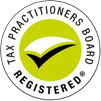The Australian tax return that you need to lodge yearly depends on the structure of your business whether you operate it as a sole trader, a partnership, a company or a trust.
Sole trader
A sole trader structure is essentially the same as the individual who owns it; thus, your personal assets may be made to answer for your business obligations. The law does not prescribe a separate Australian tax return for the sole trader business but you will have to lodge an individual tax return showing all amounts and income received from the sole trader business you operate. You have a choice to lodge this return online using the E-Tax system or by the traditional paper tax return.
Partnership
The partnership is required to lodge a partnership tax return showing its income. The partners that make up the partnership must lodge their individual tax returns showing any income received from the business and other assessable income.
Trust
This business structure must lodge a Trust Tax Return annually showing the trust’s income. The beneficiaries of the trust are required to lodge individual tax returns stating the portion of the trust income received and all other assessable income.
Company
This business structure is required to lodge a company tax return showing its income. Its shareholders must lodge their individual tax returns showing any employment income if working for the company as well, dividend income and all other assessable income received during the year.
Assessable income
Assessable income refers to income that is subject to tax. Generally, when computing the assessable income of your small business, you include the following amounts received:
- In the ordinary course of business either from selling products or providing services;
- from isolated transactions not in the ordinary course of business;
- to replace something that would have had the character of business income;
- from the sale of depreciating assets;
- as compensation for trading stock losses, interruption to business or cancellation of contracts;
- commission income;
- dividends and franking credits;
- fees for services;
- grants;
- incentive payments;
- income earned outside Australia;
- lease payments.
Allowed Deductions
Generally, you are allowed to claim most expenses incurred in running your business to reduce your assessable income. These must be directly related to earning the company’s assessable income and must not exceed maximum limits set by law. There are items you can never claim in your Australian tax return, and these are personal or private expenses, those relating to income that is not taxable like a hobby and those that are specifically non-deductible under the tax law such as parking fines.




